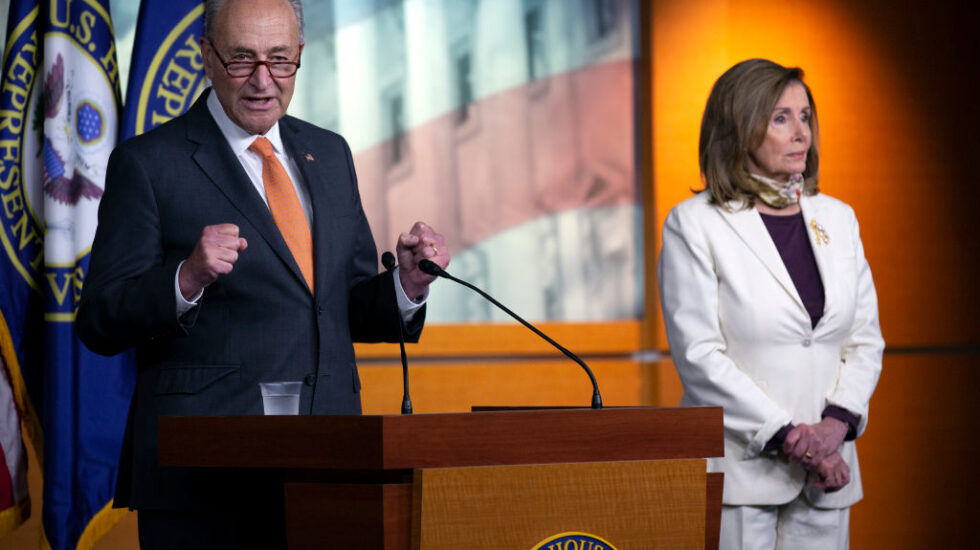A shrunken Republican stimulus bill for Americans suffering from the Covid-19 pandemic is “headed nowhere,” the two top Democrats in Congress said on Tuesday.
The GOP describes its bill as “slimmed down” from one it proposed in July, but in a statement, Sen. Chuck Schumer (D-NY) and House Speaker Nancy Pelosi (D-CA) labeled it “emaciated” and unsupportable, reports Axios.
Introducing the bill Tuesday after returning from August vacation, Senate Majority Leader Mitch McConnell (R-KY) said he’ll force a vote on it, probably by the end of this week.
In a joint statement, Pelosi and Schumer “dismissed the bill, saying it ‘doesn’t come close to addressing the problems [caused by the pandemic] and is headed nowhere,’” says the Washington Post.
The proposal includes “$300-per-week federal unemployment payments on top of regular state benefits, another round of funding to aid small and medium-sized businesses, liability protections for businesses, schools and charities, and $105 billion for education, among other provisions,” Politico reports.
“McConnell didn’t release a price tag for the forthcoming bill, but it is expected to be at least $500 billion — half of the $1 trillion package Republicans previously unveiled in late July,” says The Hill.
That’s just one-sixth the size of the $3 trillion stimulus package passed by House Democrats more than three months ago. But some members of McConnell’s sharply divided party don’t want to spend anything at all.
In their statement, Pelosi and Schumer say the bill is “only intended to help vulnerable Republican senators by giving them a ‘check the box’ vote to maintain the appearance that they’re not held hostage by their extreme right-wing that doesn’t want to spend a nickel to help people.”
“Senate Republicans have decided that they can get behind a narrow, scaled back package that addresses only the key issues with widespread GOP support,” says Politico, adding that while both sides “insist they want a compromise, neither is making any real concessions that would be needed to get there.”
In any event, the bill isn’t expected to gain the 60 votes needed to overcome a Democratic filibuster. And if it somehow did pass the Senate, Rep. Jerry Nadler (D-NY), the Judiciary Committee chairman, said the Democratic-led House wouldn’t even consider it.



